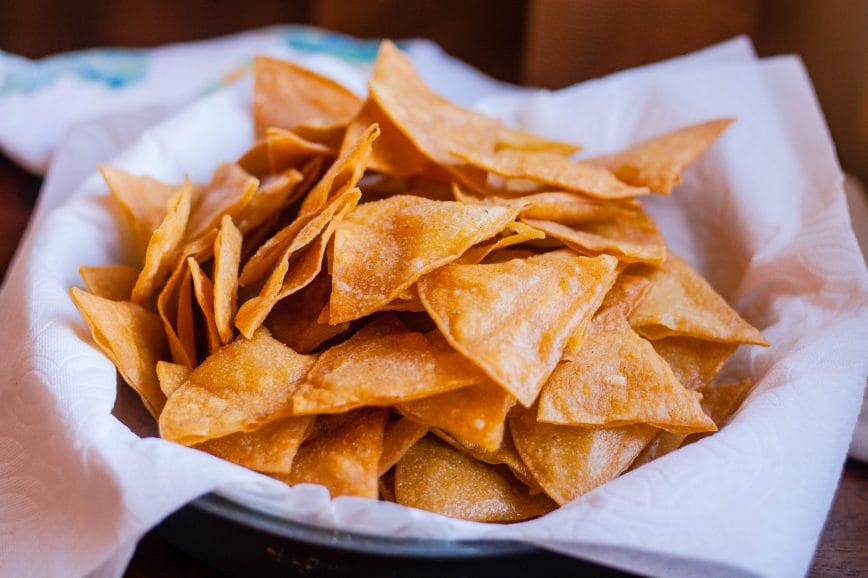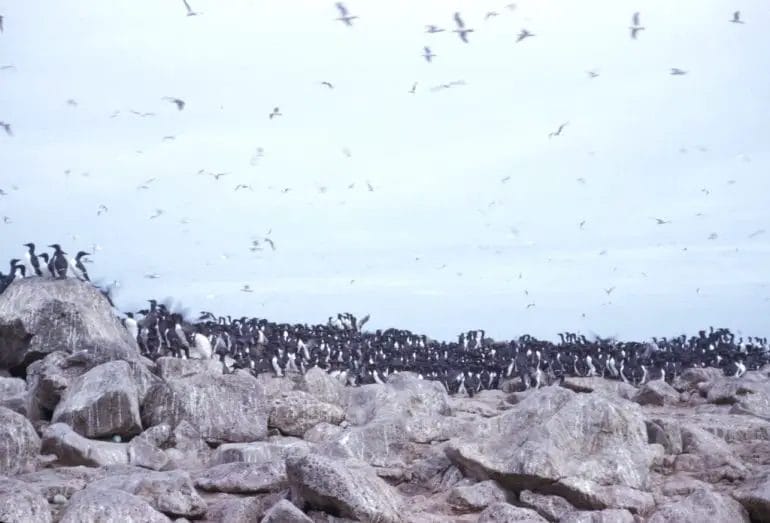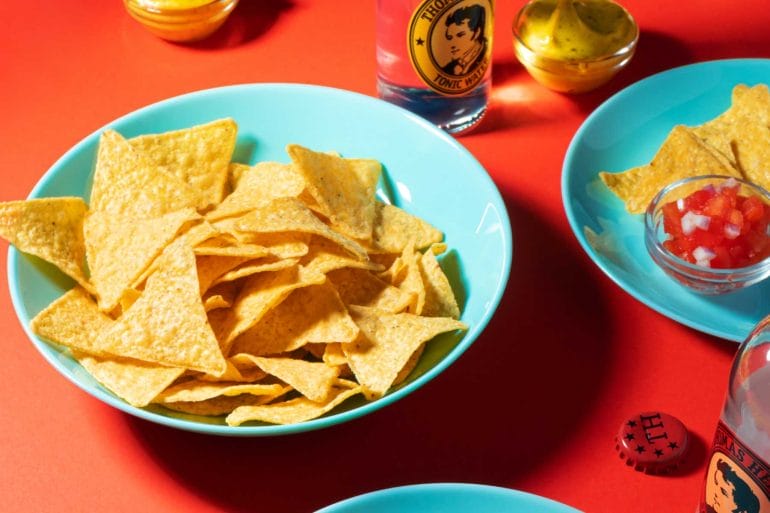Birds can eat tortilla chips, but they are not an ideal food for them. Although birds may be attracted to the salty and crunchy texture, tortilla chips are processed and high in salt and fat, which can be harmful to their health.
It is important to note that birds have specific dietary needs, and their natural diet consists of seeds, nuts, fruits, and insects. Offering them a variety of bird-friendly foods will ensure they receive the necessary nutrients for their well-being.
Feeding birds with appropriate birdseed or specialized bird feed mixes is a safer and more suitable option to support their nutritional requirements.

Potential Risks of Feeding Tortilla Chips to Birds
Tortilla chips are a popular snack enjoyed by many people around the world. They are made from corn tortillas that are fried until crispy and then seasoned with various flavors. While these chips may be a tasty treat for humans, they can pose potential risks to birds if consumed. In this section, we will explore the dangers of feeding tortilla chips to birds and why it is best to avoid doing so.
1. High Sodium Content
Tortilla chips often contain high levels of sodium, which is not suitable for birds’ health. Birds have different dietary needs than humans, and excessive sodium consumption can lead to health problems for them. High salt intake can disrupt the delicate balance of electrolytes in a bird’s body, leading to dehydration, kidney problems, and even death. It is essential to provide birds with a diet that meets their nutritional requirements, and tortilla chips do not fulfill those needs.
2. Lack of Essential Nutrients
Tortilla chips do not offer any significant nutritional benefits to birds. Birds require a varied diet to ensure they receive essential vitamins, minerals, and proteins. Feeding them tortilla chips as a regular food source can lead to malnutrition and deficiencies in vital nutrients. It is crucial to provide birds with a balanced diet that includes a range of fruits, vegetables, seeds, and specialized bird feed to support their overall health and well-being.
3. Choking Hazard
Tortilla chips are hard and crunchy, making them a potential choking hazard for birds. Birds have sensitive throats and digestive systems, and consuming large, dry pieces of tortilla chips can cause blockages or injuries. The risk of choking increases if the chips are not broken down into smaller, more manageable pieces. It is best to avoid feeding birds any food items that can pose a choking risk, including tortilla chips.
4. Pesticide Contamination
The production and packaging of tortilla chips sometimes involve the use of pesticides to protect the corn crops from pests. Feeding birds tortilla chips that have been treated with pesticides can introduce harmful chemicals into their system, leading to poisoning and potential long-term health issues. It is essential to prioritize the safety and well-being of birds by providing them with natural, pesticide-free food options.
5. Disruption of Natural Foraging Behaviors
Feeding birds tortilla chips can disrupt their natural foraging behaviors and instincts. Birds are designed to search for and consume foods that are readily available in their environment. By offering them processed human food like tortilla chips, we interfere with their natural foraging patterns and expose them to potentially harmful substances. It is best to encourage birds to find food naturally and provide them with appropriate bird feeders filled with bird-friendly food.
While it may be tempting to share our favorite snacks with birds, such as tortilla chips, it is vital to consider their health and well-being. Feeding tortilla chips to birds can pose various risks, including high sodium content, lack of essential nutrients, choking hazard, pesticide contamination, and disruption of natural foraging behaviors. Instead, focus on providing birds with a balanced diet that meets their specific nutritional needs to ensure their long-term health and enjoyment.

Healthy Alternatives for Feeding Birds
Feeding birds can be a joyful and rewarding activity, especially for bird enthusiasts. However, it’s important to provide them with healthy food options to ensure their overall well-being. Here are some alternatives to consider when feeding birds:
1. Seeds
Seeds are a common choice for feeding birds, but it’s essential to select high-quality options. Avoid seeds that are overly processed or contain unnecessary additives. Instead, opt for seeds like black oil sunflower seeds, which are packed with nutrients and are a favorite among many bird species.
2. Fruits
In addition to seeds, birds also enjoy fruits and can benefit from their nutritional value. Offer a variety of fresh fruits such as apples, oranges, berries, and bananas. Cut the fruits into small, manageable pieces to make it easier for the birds to eat.
3. Nectar
For hummingbirds and other nectar-loving birds, providing a nectar feeder is a great idea. Make your own nectar by mixing four parts water with one part white sugar. Avoid using honey or artificial sweeteners as they can be harmful to these birds.
4. Insects
Many bird species thrive on a diet rich in insects. Consider offering live or dried mealworms, crickets, or other small insects to attract insect-eating birds to your yard. You can find these at local pet stores or order them online.
5. Suet
Suet is a high-energy food that can be especially beneficial during colder months when birds need extra calories to keep warm. It is typically made from animal fat mixed with seeds, nuts, or dried fruits. Hang suet feeders in your yard to attract a variety of birds, including woodpeckers and chickadees.
6. Pellets and Crumbles
Pellets and crumbles designed specifically for birds provide a balanced diet with essential nutrients. These can be found at pet supply stores and are an excellent option if you’re looking for a hassle-free way to feed birds. Ensure you choose pellets suitable for the species of birds you want to attract.
7. Water
While it’s important to provide food, don’t forget about water! Birds need a clean and accessible water source all year round. Use a shallow bird bath or provide a bird water fountain to offer birds a place to drink and bathe. Remember to regularly clean and refill the water to maintain its freshness.
Feeding birds can be a delightful activity, but it’s crucial to provide them with healthy alternatives. Opt for high-quality seeds, offer a variety of fresh fruits, provide nectar feeders for hummingbirds, consider insects as a food source, hang suet feeders for extra energy, use pellets and crumbles for a balanced diet, and always provide clean water. By offering these healthy alternatives, you’ll attract a diverse range of bird species and contribute to their overall well-being.

Best Practices for Providing Bird-friendly Snacks
Bird feeding is a popular activity enjoyed by many people around the world. Not only does it provide us with the opportunity to observe and connect with nature, but it also helps support the well-being of our feathered friends. If you’re interested in attracting birds to your yard and providing them with nutritious snacks, here are some best practices to follow:
1. Choose Nutrient-rich Foods
When selecting snacks for birds, it’s important to opt for nutrient-rich options that will meet their dietary needs. Some common bird-friendly snacks include:
- Seeds: Birds such as finches, sparrows, and cardinals love seeds like sunflower, millet, and nyjer.
- Fruits: Offer a variety of fresh or dried fruits such as apples, berries, and raisins.
- Insects: Many bird species, especially insect-eating birds like warblers and wrens, enjoy mealworms and suet.
- Nectar: Hummingbirds are attracted to nectar found in specially designed feeders.
2. Provide a Variety of Snack Options
Just like humans, birds have their own preferences when it comes to food. By offering a diverse range of snacks, you’ll be able to attract a wider variety of bird species to your yard. Different birds have different beak shapes and sizes, so providing a selection of foods will accommodate their feeding habits.
3. Ensure Freshness and Cleanliness
Birds, like any other animals, appreciate fresh and clean food. Make sure to regularly clean and refill your bird feeders to prevent the growth of harmful bacteria or mold. Remove any stale or spoiled food to maintain the health of the birds visiting your yard.
4. Place Feeders in Safe Locations
It’s important to consider the safety of the birds when deciding where to place your feeders. Position them near natural shelter such as trees or shrubs to provide birds with protection from predators. Additionally, keep feeders away from windows to prevent bird collisions.
5. Create a Bird-friendly Environment
In order to attract and keep birds coming to your yard, it’s crucial to create a welcoming environment. Planting native trees, shrubs, and flowers will provide birds with natural sources of food, nesting materials, and shelter. Consider installing a bird bath or a shallow water source for them to drink and bathe in.
6. Avoid Harmful Substances
When providing snacks for birds, it’s important to avoid using harmful substances such as pesticides or herbicides in your yard. These chemicals can be toxic to birds and have adverse effects on their health. Opt for organic gardening practices to ensure a safe and bird-friendly environment. In summary, by following these best practices, you can create a bird-friendly space in your yard and provide nutritious snacks for our feathered friends.
Remember to choose nutrient-rich foods, offer a variety of snack options, ensure freshness and cleanliness, place feeders in safe locations, create a bird-friendly environment, and avoid harmful substances. Enjoy the beauty and joy of bird watching while contributing to their well-being. Happy bird feeding!
Understanding the Dietary Needs of Different Bird Species
Birds are a diverse group of animals that come in various shapes, sizes, and colors. With over 10,000 species of birds in the world, it’s no surprise that their dietary needs can differ significantly. Understanding the specific dietary requirements of different bird species is crucial for their overall health and well-being.
The Importance of a Balanced Diet
Just like humans, birds require a balanced diet to thrive. A balanced diet ensures that they receive all the necessary nutrients, vitamins, and minerals for their growth, energy, and overall health. Feeding birds a varied and nutritious diet helps prevent deficiencies and promotes optimal health.
Seed-Eating Birds
One common group of birds are seed-eating species, such as finches and sparrows. These birds predominantly rely on seeds for their diet. However, it’s important to note that not all seeds are created equal. Some seeds, like sunflower seeds, are highly nutritious and provide essential fatty acids, proteins, and vitamins. Other seeds, such as millet, are less nutritionally dense.
When feeding seed-eating birds, it’s recommended to offer a mix of high-quality seeds. This ensures that they receive a variety of nutrients. Additionally, supplementing their diet with fresh fruits and vegetables can provide added nutritional benefits.
Nectar-Feeding Birds
Nectar-feeding birds, such as hummingbirds and lorikeets, have specialized dietary needs. These birds rely on nectar as their primary source of energy. Nectar is a sugary substance found in flowers.
When attracting nectar-feeding birds, it’s essential to provide them with nectar feeders. These feeders contain a solution of sugar water that mimics natural nectar. It’s important to use the correct sugar-to-water ratio to ensure the well-being of these birds. Additionally, planting nectar-rich flowers in your garden can further support their dietary needs.
Insect-Eating Birds
Another group of birds are insect-eating species, such as swallows and flycatchers. These birds primarily feed on insects, which are rich in protein and provide essential nutrients.
If you want to attract insect-eating birds, creating an insect-friendly environment is key. This can be achieved by planting native plants that attract insects. Additionally, leaving dead trees or branches standing can provide nesting sites and attract insects, which in turn attract these bird species.
Carnivorous Birds
Certain birds, such as raptors (eagles, hawks, owls) and shorebirds, have carnivorous dietary needs. These birds rely on a diet of small mammals, reptiles, fish, and other birds.
Feeding carnivorous birds in captivity can be challenging. It’s crucial to provide them with a balanced diet that mimics their natural prey. This may involve offering frozen rodents, fish, or specially formulated commercial diets designed for carnivorous birds.
Understanding the specific dietary needs of different bird species is essential for their overall health and well-being. Birds have diverse dietary requirements based on their natural feeding habits. Providing a balanced diet that meets their nutritional needs ensures their optimal health and supports their natural behaviors.
Whether it’s seed-eating birds, nectar-feeding birds, insect-eating birds, or carnivorous birds, catering to their dietary needs is crucial for attracting and sustaining a diverse range of bird species in our environment.
Can birds eat tortilla chips?
No, birds should not eat tortilla chips. Tortilla chips are typically high in salt and unhealthy additives, which can be harmful to birds. It’s best to stick to their natural diet of seeds, nuts, fruits, and insects.
Conclusion
While birds may be attracted to the crunchy texture and salty taste of tortilla chips, it is not recommended to feed them these snacks. Tortilla chips are typically high in salt, unhealthy fats, and artificial flavors, which can be harmful to birds’ digestive systems.
Additionally, the sharp edges of the chips can pose a choking hazard. Instead, it is best to provide birds with a balanced diet of seeds, grains, fruits, and vegetables specifically suited to their nutritional needs. By offering them appropriate food, we can ensure the well-being and health of our feathered friends.
Remember, it is always important to research and consult with experts to ensure the safety and well-being of birds when considering their diet.
